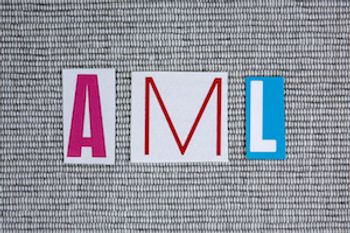
A novel drug that targets MDMX and MDM2, which inhibit a protein that suppresses tumors when they are overexpressed, has tripled the median survival rate in an animal model of human acute myeloid leukemia, according to new research.


A novel drug that targets MDMX and MDM2, which inhibit a protein that suppresses tumors when they are overexpressed, has tripled the median survival rate in an animal model of human acute myeloid leukemia, according to new research.
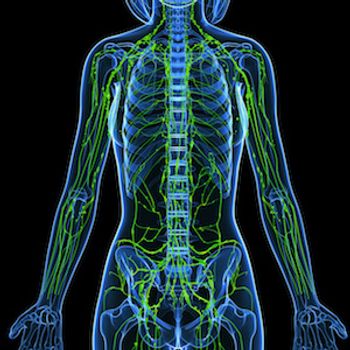
Researchers have identified genetic subtypes of diffuse large B-cell lymphoma that revise the molecular classification of the disease and could provide insight into why some patients respond to treatment and others don’t.
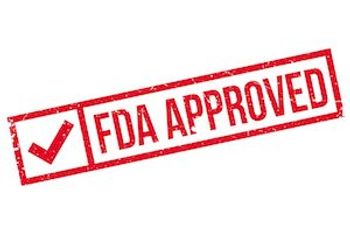
The FDA has approved brentuximab vedotin (Adcentris) in combination with chemotherapy for adults with previously untreated state 3 or 4 classical Hodgkin lymphoma based on results of the ECHELON-1 study.
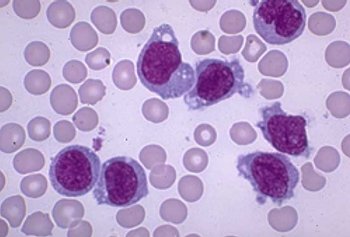
A new study recently published in Proceedings of the National Academy of Sciences has identified a possible solution for improving the efficacy of moxetumomab pasudotox, or moxe, in patients with relapsed and chemotherapy-resistant acute lymphoblastic leukemia.

New research has found that allogeneic hematopoietic stem cell transplantation is just as effective in patients with non-Hodgkin lymphoma who are age 65 and older as it is in patients between the ages of 55 and 64.
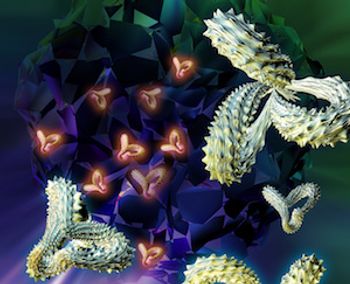
CAR T-cell therapies tisagenlecleucel (Kymriah, Novartis) and axicabtagene ciloleucel (Yescarta, Kite Pharma/Gilead) may come with hefty price tags, but the cost-effectiveness of both therapies fell below or within commonly cited thresholds of $50,000 to $150,000 per quality-adjusted life years, according to a report by the Institute for Clinical and Economic Review.

Patients with chronic myeloid leukemia (CML) who have a sustained deep molecular response can maintain treatment-free remission for at least 48 weeks after using second-line nilotinib, according to a new study published in Annals of Internal Medicine.

Two stories--of taking part in clinical trials, and of serving as a voice for patients among scientists who run them--highlight how the advances in cancer are built on the trust between those living with the disease and the clinicians on the frontiers of care.

CONCORD-3 includes the records of 37.5 million patients diagnosed with cancer from 2000 to 2014, 322 population-based cancer registries in 71 countries and territories, and data on patients' vital status at least 5 years following diagnosis.

Researchers at the 59th Annual Meeting and Exposition of the American Society of Hematology in Atlanta, Georgia presented studies investigating the quality of life associated with various oncologic diseases.

Coverage from the 59th Annual Meeting and Exposition of the American Society of Hematology, December 9-12, 2017.

Chimeric antigen receptor (CAR) T-cell therapy has been named the Advance of the Year in ASCO’s Clinical Cancer Advances 2018. According to the annual report, CAR T-cell therapy is “poised to transform the outlook for children and adults with certain otherwise incurable cancers."

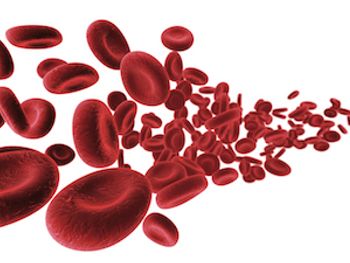
The FDA was busy in 2017, with a number of notable approvals, including the first chimeric antigen receptor T-cell treatment. In a session at the 59th American Society of Hematology Annual Meeting and Exposition in Atlanta, Georgia, employees from the FDA presented data on 5 new drug approvals in leukemia and lymphoma in 2017.

Adolescents and young adults with acute lymphoblastic leukemia (ALL) tend to have worse outcomes than children with ALL, and new research published at the 59th American Society of Hematology Annual Meeting delved into the reasons why, explained Julie A. Wolfson, MD, of the University of Alabama at Birmingham School of Medicine.

Patients with blood cancers tend to use hospice care services less frequently overall than patients with solid tumors. While there has been an increase in hospice care use in patients with blood cancers, there has been a failure to increase hospice use meaningfully, according to Thomas LeBlanc, MD, of the Duke Cancer Institute.

Clonal hematopoiesis and selection pressures associated with aging can together lead to the development of neoplasms. Two hematologists presented US and European updates on the potential to develop a predictive model, and an appropriate intervention, in these individuals.

Two abstracts at the 59th Annual Meeting of the American Society of Hematology in Atlanta, Georgia found that CTL019 shows promising potential in providing significant benefit and cost effectiveness for pediatric and young adult patients with B-cell acute lymphoblastic leukemia in both the United States and the United Kingdom.

Is transfusion dependence a barrier to hospice utilization among older patients with leukemia who are enrolled in Medicare?

Ibrutinib has the potential to improve vaccine response for patients with chronic lymphocytic leukemia, and an ongoing trial will help provide a better understanding, explained Kerry Rogers, MD, assistant professor, internal medicine, Division of Hematology, The Ohio State University Comprehensive Cancer Center.

Three studies presented at the ongoing 59th Annual Meeting and Exposition of the American Society of Hematology in Atlanta, Georgia, shared progress on the oral Bruton’s tyrosine kinase inhibitor, ibrutinib, in the treatment of relapsed/refractory mantle cell lymphoma (MCL) and as a single agent in chronic lymphocytic leukemia (CLL).

Acute myeloid leukemia treatment episodes such as high-intensity chemotherapy, low-intensity chemotherapy, hematopoietic stem cell transplant, and relapsed-refractory patient episodes pose a significant substantial burden, according to an analysis presented at the 59th Annual Meeting of the American Society of Hematology in Atlanta, Georgia.

An analysis presented at the 59th Annual Meeting of the American Society of Hematology showed that against a 3-year horizon, ibrutinib succeeds in overall survival (OS) and progression free suvrvival (PFS) over hematopoetic stem-cell transplantation (HSCT) in the treatment of patients with relapsed/refractory chronic lymphocytic leukemia with 17p deletion. Against a lifetime horizon, ibrutinib still proved to be superior in OS and PFS over HSCT, but is no longer cost saving as treatment costs continue.
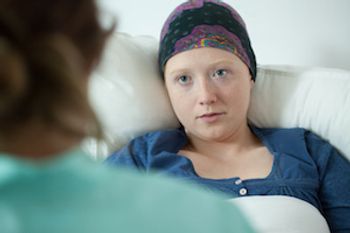
A study published in JAMA Oncology found that a significant number of patients newly diagnosed with cancer have had a prior cancer. The prevalence differed among age group and incident cancer type.
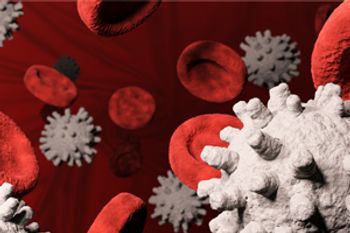
An early-stage trial in pediatric and young adult patients with relapsed/refractory B-cell acute lymphoblastic leukemia (B-ALL) has found that modifying the chimeric antigen receptor (CAR) T cells to target the CD22 receptor achieved remission.

259 Prospect Plains Rd, Bldg H
Cranbury, NJ 08512
© 2025 MJH Life Sciences®
All rights reserved.
